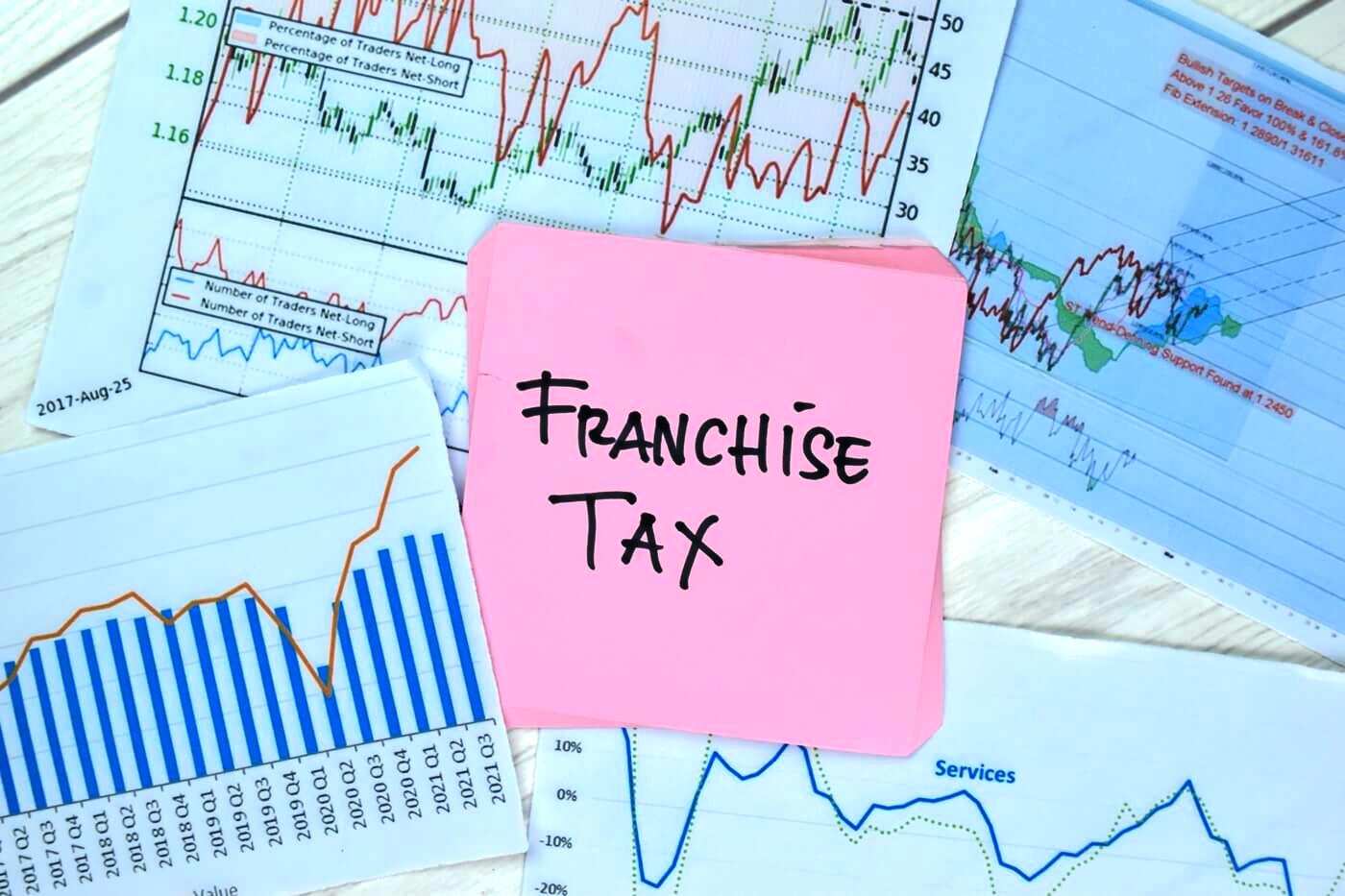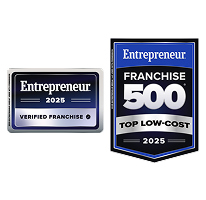You’re seriously considering an investment in the ownership of a thriving franchise business. It could be a very smart move, but your head is full of questions about tax obstacles, incentives, and ramifications.
Is a franchise tax deductible? Are franchise fees tax deductible? Realistically, what are the benefits and risks of this ownership model? Are there franchise tax benefits?
Where to start?
This guide is a great first step. Then, schedule a meeting with your tax advisor.
Franchise Tax Incentives for First-Time Investors
Is this type of investment tax deductible? Yes, in many ways.
You can start earning deductions on the income tax on franchises from the moment you adopt a franchise model and go into business for yourself. Here are some of the more common federal tax advantages of owning a business under a licensed brand.
Franchise Fee Tax Deduction
From the get-go, you can get a tax deduction on your franchise fee. Think of this upfront cost as your price of admission. The fee gets you permission to use the name, logo, and business methods of the franchisor. In short, this is what makes you one of dozens, hundreds, or even thousands of franchisees with the same business name and trusted brand.
The cost of the franchise fee might be a couple of thousand dollars or well into six figures. It depends on the perceived market value of that brand and how big a draw that name is likely to have over competitors that carry less familiar and trusted names.
Depending on what you’re paying in a franchise fee, you can get a tax deduction of as much as $15,000. The catch is, your IRS deduction must be amortized, or gradually written off, over a period of 15 years. For example, if your fee was $150,000, you can claim tax deductions of $10,000 annually over those first 15 years in business.
Royalty Fee Tax Advantages
In addition to the upfront franchise fee, you’ll also agree to pay your franchisor a royalty fee on an ongoing basis. This is a cost that reflects the value of the franchisor-owned products or services you provide.
Whether it’s a Big Mac or an annual homeowners insurance policy, the thinking is that the customer selected this particular burger or policy because of the brand’s popularity and reputation. Therefore, the franchisor who originated and grew that brand should be compensated.
Different franchisors charge this cost in different ways. It might be a percentage of your gross sales, a cut of your net income, or some other factor. However you’re charged, the IRS considers royalty fees to be legitimate costs of doing business, and they’re tax deductible in the year in which you pay them.

SBA Loan Tax Advantages for Franchise Purchases
The Small Business Administration offers government-guaranteed loans that can be used to purchase a franchise business. SBA loans tend to have lower interest rates and longer payback periods than conventional loans. That gives you more capital for running your business rather than financing it.
Like other bank loans, the interest payments of those backed by the SBA earn federal tax credits as legitimate business expenses. But there’s another benefit that’s of exclusive appeal to franchisee purchasers: you can also wrap your franchise fees up in your SBA loan.
Tax Deductions on Business Startup Costs
In addition to the special fees you’ll pay to become a franchisee, you’ll also assume some of the usual startup costs of more traditional businesses. You still might need to pay for equipment, inventory, employee wages and training, and even the more mundane expenditures, such as utilities. You might also need a reconfigured retail building or to rent office space.
Most, if not all, of those more conventional expenses will be tax deductible, just as they would be if you were operating a non-franchise business.
Depreciation as a Tax Strategy
Some big-ticket assets needed for business lose value — or depreciate — over time. The IRS lets you claim a tax deduction for several years as that asset steadily declines in value.
This tax strategy works for franchisees just as it would for most business owners who must make such significant purchases as commercial kitchen equipment, fleet vehicles, and even standard office equipment. The common theme here is that these assets all lose value over time due to wear and tear and obsolescence.
Rather than claiming a tax deduction on the initial investment of the asset, the IRS lets you take an annual deduction as the asset steadily shrinks in value. The depreciation rate will vary depending on the item, but it’s another smart way of reducing your tax burden at the end of the year.
Other Franchise Investment Financing and Tax Benefits
Consider a few more tax incentives, depending on the type of franchise you own.
Interest Deduction on Franchise Loans
How do you plan to finance the purchase of your business? If you’re taking out a bank loan, the interest you pay is tax deductible.
This can be a most welcome Tax Day gift because the average startup cost of a franchise, including the fee, can range between about $50,000 and $250,000. It’s quite likely that most prospective business owners will need to borrow at least part of the startup costs, so taking advantage of this credit can be a smart tax strategy.
Keep in mind that only the annual interest on the loan is tax deductible, not the loan principal.
Tax Benefits of Franchisor Financing Options
Some franchisors have in-house lending programs. They will, in effect, be your banker for your startup loan, including the franchise fee. In related cases, the franchisor has acquired a network of motivated lenders who’ll provide financing to qualified applicants at prime rates.
Either way, you can get the same tax deduction on the interest you pay as you’d be able to claim if you took a more conventional bank loan for startup costs.
If the franchisor you’re considering offers such financing terms, it should be clearly spelled out in the Franchise Disclosure Document (FDD) you’ll receive before committing to a purchase.
Retirement Fund Usage for Franchise Investment (ROBS)
Be careful with this one. The Rollovers as Business Startups (ROBS) is a financing program designed specifically for entrepreneurs buying a business. It enables you to withdraw from retirement accounts such as your 401(k) or IRA to finance the purchase of a franchise without tax penalty.
Caution is urged because it can be risky to reduce your retirement savings even for a good reason, such as starting a business. If the business fails, you might have a significant hole in your nest egg and little time to replenish the account adequately. That said, ROBS can be a good way to finance a franchise business startup without borrowing a penny.
You can find more information about ROBS on the IRS website.
Tax Benefits for U.S. Veterans and Companies Hiring Vets
Both the IRS and some franchisors have special offers for U.S. military veterans buying and owning franchises. For instance, Freeway Insurance showcases its commitment to veterans by granting honorably discharged vets an impressive $10,000 discount on the franchise fee.
Several states also grant tax benefits for business owners who are U.S. veterans. Among them, Texas grants five-year tax exemptions to startup entrepreneurs who are veterans.
On a related note, franchise owners, whether veterans or not, can also receive tax breaks for hiring vets. For example, the Returning Heroes and Wounded Warriors program gives employers tax credits for hiring disabled and unemployed vets. Take advantage of this IRS incentive when you can.
Long-Term Tax Benefits of an Opportunity Zone Location
The U.S. Treasury recognizes more than 8,700 so-called Opportunity Zones in the U.S. These are regions designated as economically distressed. With a goal of increasing employment and reducing poverty, the IRS grants business owners special tax incentives to invest in Opportunity Zones.
You could earn the right to pay nothing in capital gains taxes if you operate the business in the zone for at least ten years. That could lead to significant savings if your business succeeds and you choose to sell it.
Ask Your Freeway Insurance Franchise Rep About the Tax Advantages of Joining Our Team
Freeway is one of the nation’s largest and most respected personal lines insurance carriers. Tax incentives are only one of many reasons to consider joining hundreds of successful entrepreneurs in our coast-to-coast network of franchisees. In addition, you’ll receive top-tier training, ongoing support, and access to major brands your customers need and want.
Let’s talk taxes, brand strength, and opportunity. Call your Freeway Insurance franchise representative at 877-822-3024 today if you’d like to own your own company and grow a rewarding career with ongoing support.
Or give us your contact information online, and we’ll check in with you.
Either way, we’ll show you a rewarding career path with customers motivated to seek out the quality products you’re offering.



